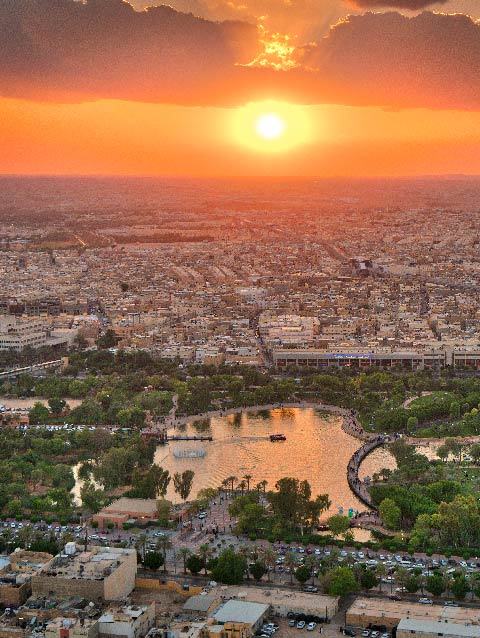HOME / PROGRAMS AND PROJECTS
Green Riyadh Program
The “Green Riyadh” program is one of the largest ambitious urban afforestation projects in the world and one of the four major Riyadh projects launched by the Custodian of the Two Holy Mosques King Salman Bin Abdulaziz, on Tuesday, Rajab 12, 1440 AH (March 19, 2019 AD) at the initiative of His Royal Highness Prince Mohammed Bin Salman Bin Abdulaziz, Crown Prince Prime Minister to contribute to achieving one of the goals of “Saudi Vision 2030” to raise the classification of Riyadh among its counterparts in the world and make it one of the best cities to live in the world.

Vision
The Green Riyadh program should contribute to raising the per capita share of green space in the city and increasing the percentage of total green spaces by intensifying afforestation in all elements of the city, while achieving the optimal use of treated water in irrigation works; which contributes to improving air quality, reducing temperatures in the city, and encouraging residents to practice a more active and vibrant lifestyle in line with the goals and directions of the Kingdom’s Vision 2030.
Program Projects
The Green Riyadh Program aims to plant more than 7.5 million trees throughout the city of Riyadh until 2030, to raise the per capita share of green space in the city of Riyadh, from 1.7 square meters to 28 square meters, equivalent to 16 times, and increase the percentage of total green spaces in the city from 1.5% to 9%, which contributes to improving the quality of life in the city of Riyadh.
The list includes 99 selected tree species that suit the city’s environment and achieve the program’s objectives within three main groups of projects:
City Afforestation Projects
These projects include afforestation of the following elements:
- 43 grand parks
- 148 km2 of valleys and their tributaries
- 1205 linear km of main roads
Neighborhood Afforestation Projects
These projects include planting across:
- 120 residential districts
- 3,331 neighborhood parks
- 5,939 schools
- 4,500 mosques
- 387 health facilities
- 4,936 linear km of internal streets
- 1,665 government complexes
- 2,000 parking locations
- 4,515 vacant land plots
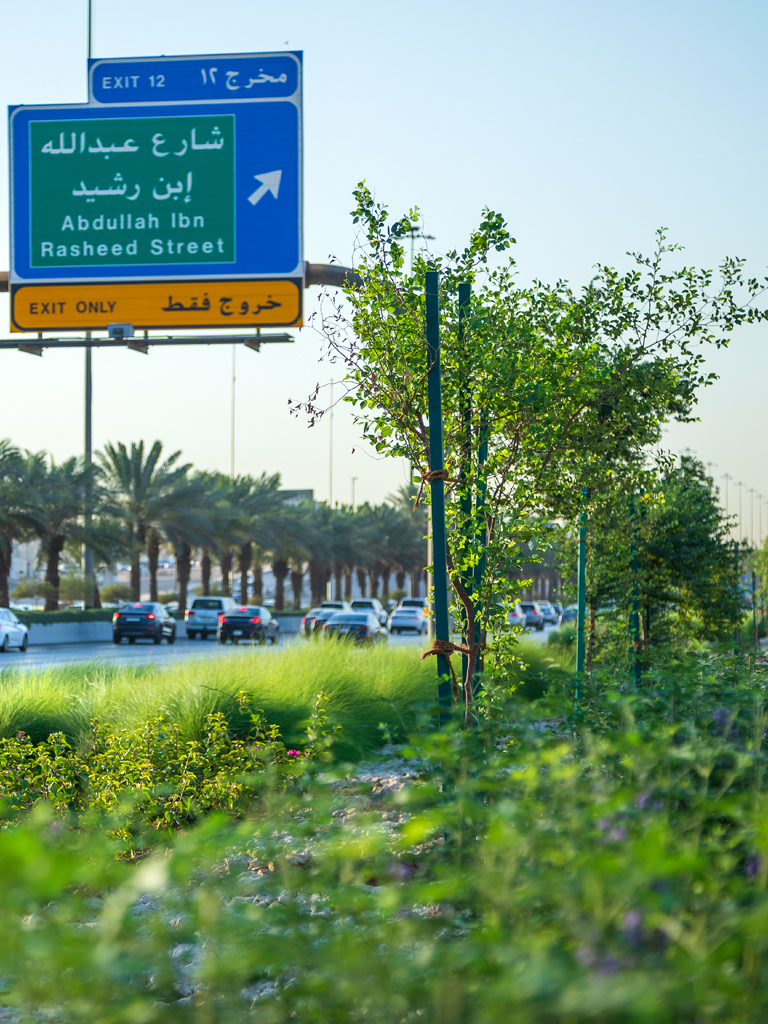
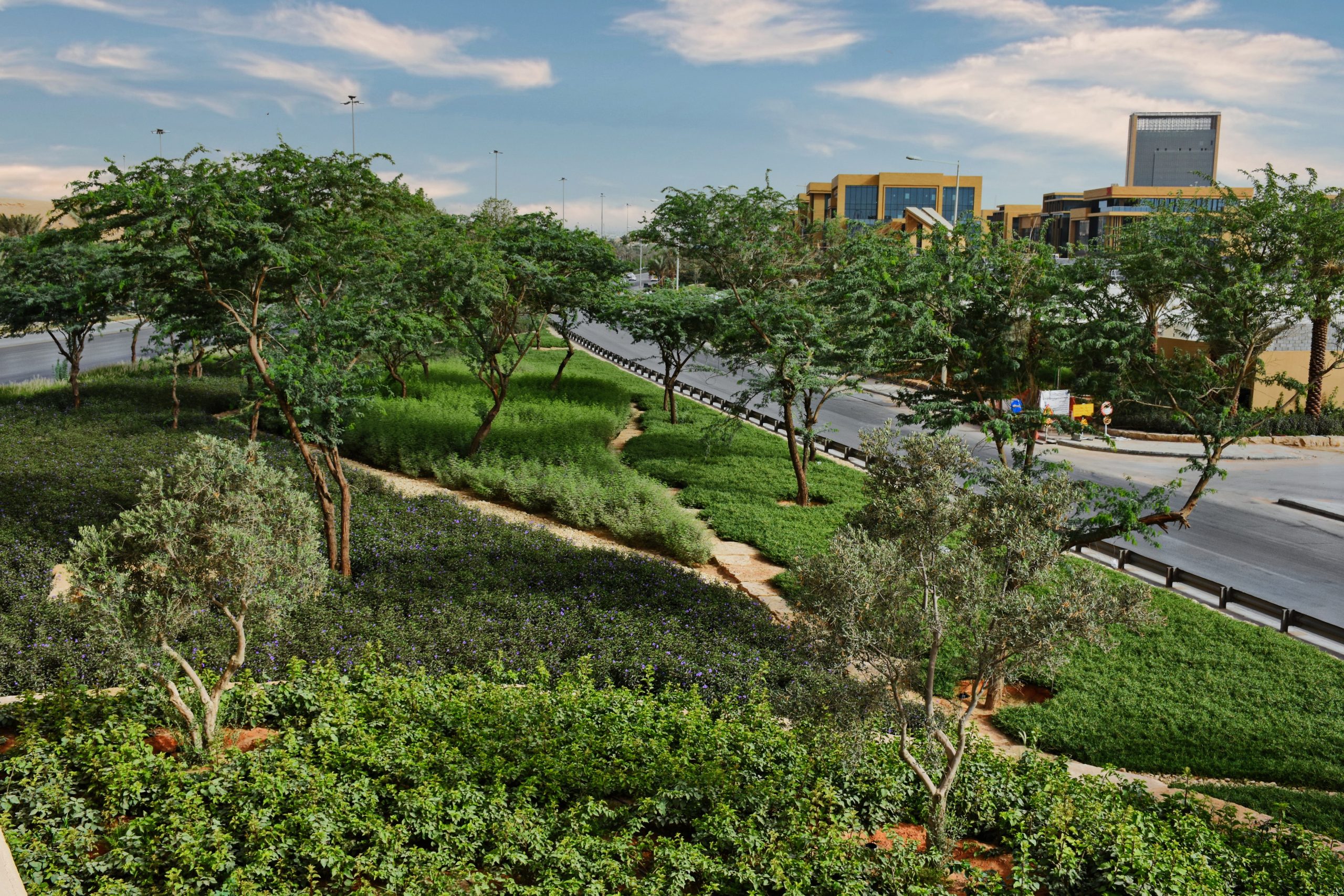
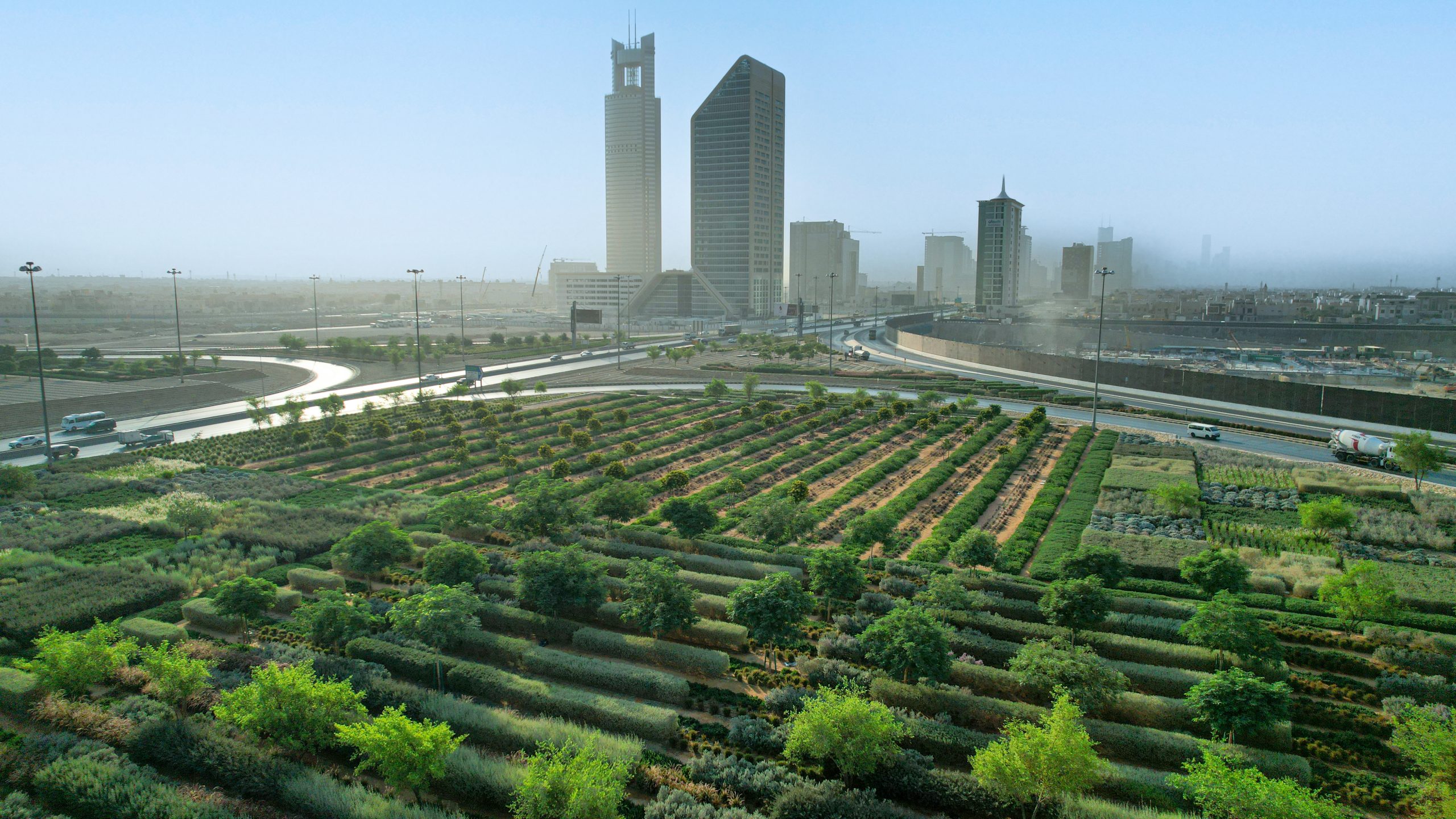
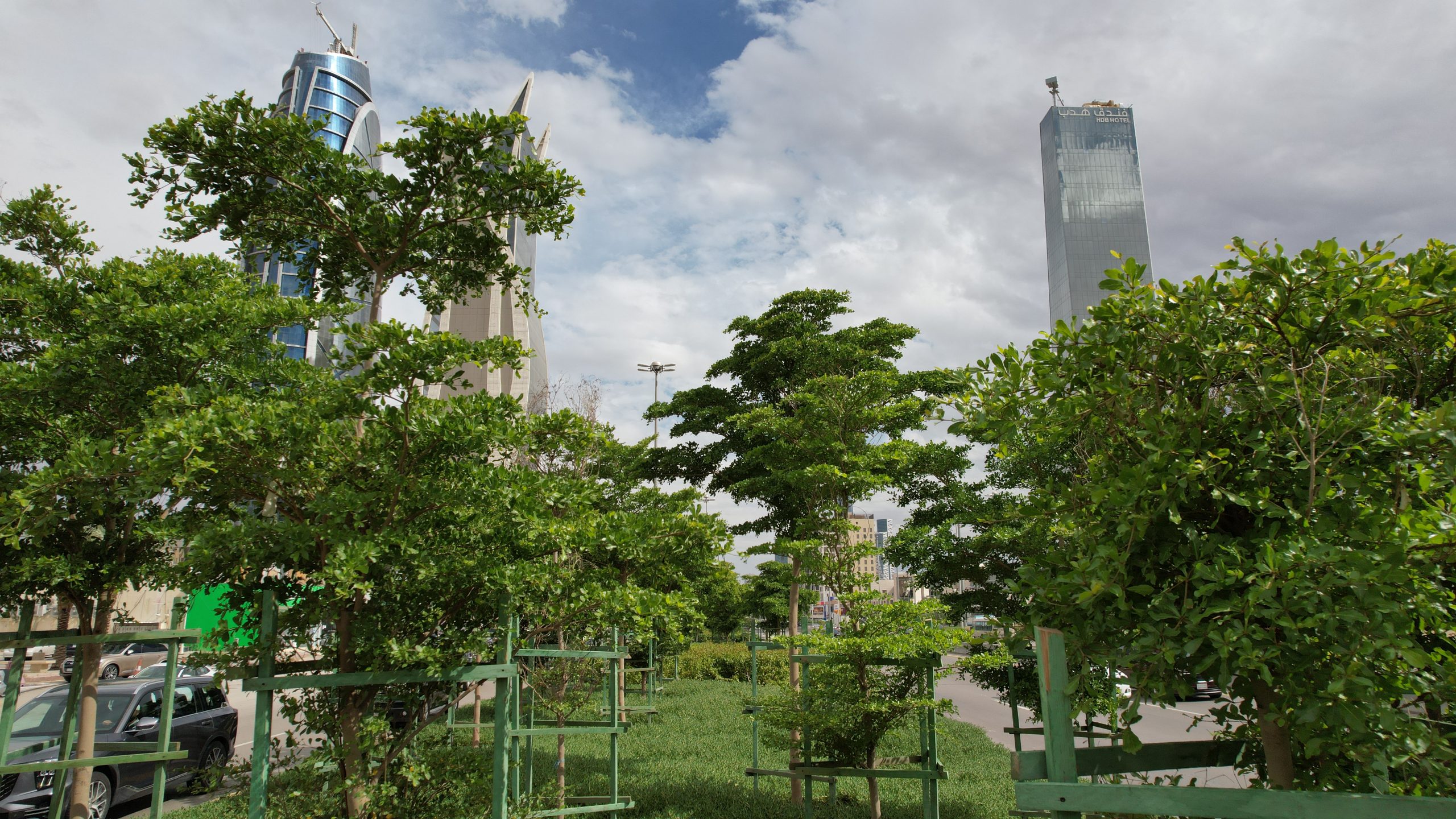
Enablers and infrastructure projects
The program works on the establishment and development of plant nurseries with a production capacity exceeding 3,000,000 seedlings annually, as these plant nurseries include the following:
- Seedling production
- Seed Bank
- Breeding and caring for trees
- Training centers and laboratories
The program is implementing irrigation water networks spanning 1,350 km, with a capacity of 1,700,000 m³ per day, and increasing the use of treated water for irrigation from 11% to 100%.
The program also includes the development of legislation and urban controls to promote afforestation in public and private projects and stimulate community participation in afforestation initiatives.
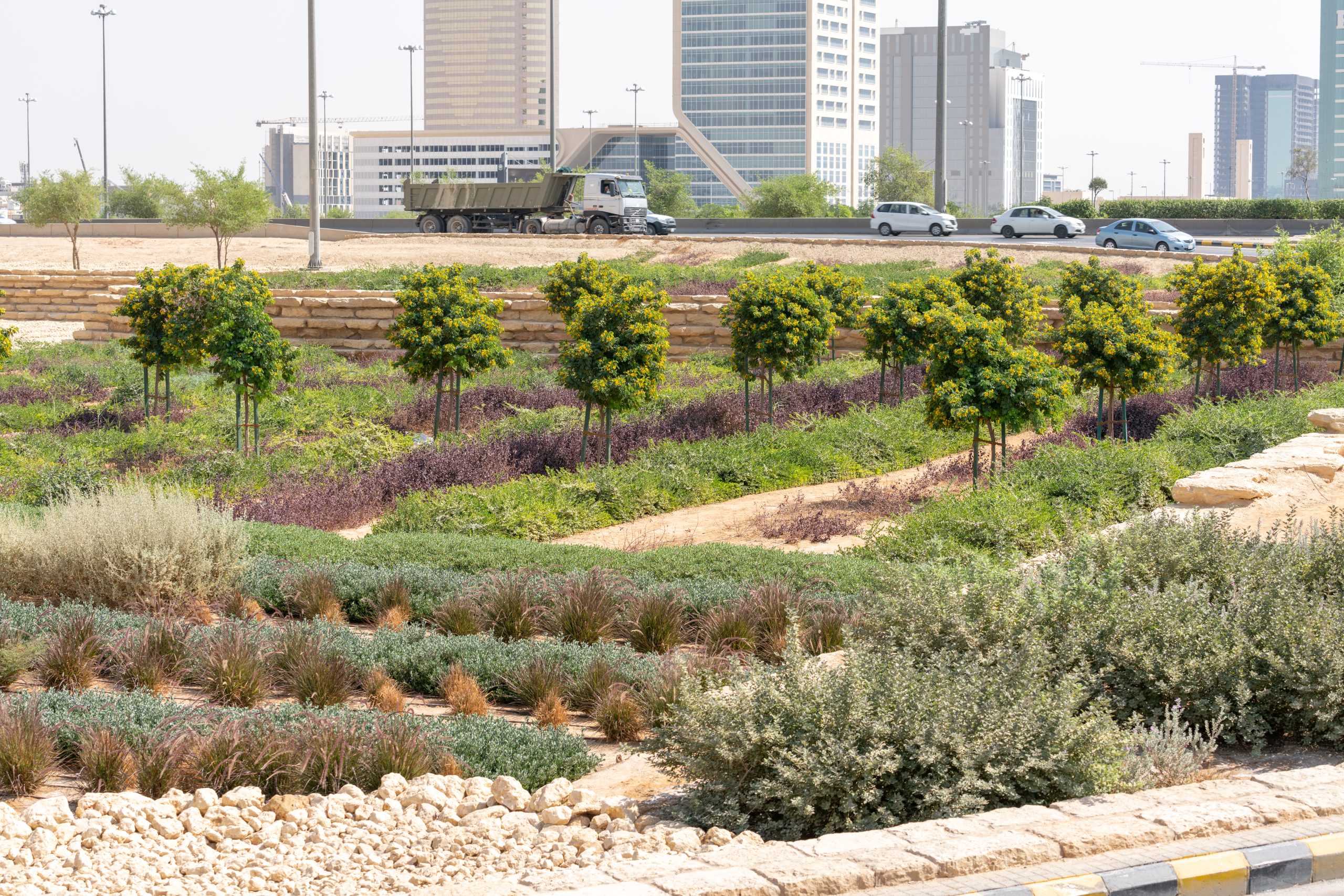
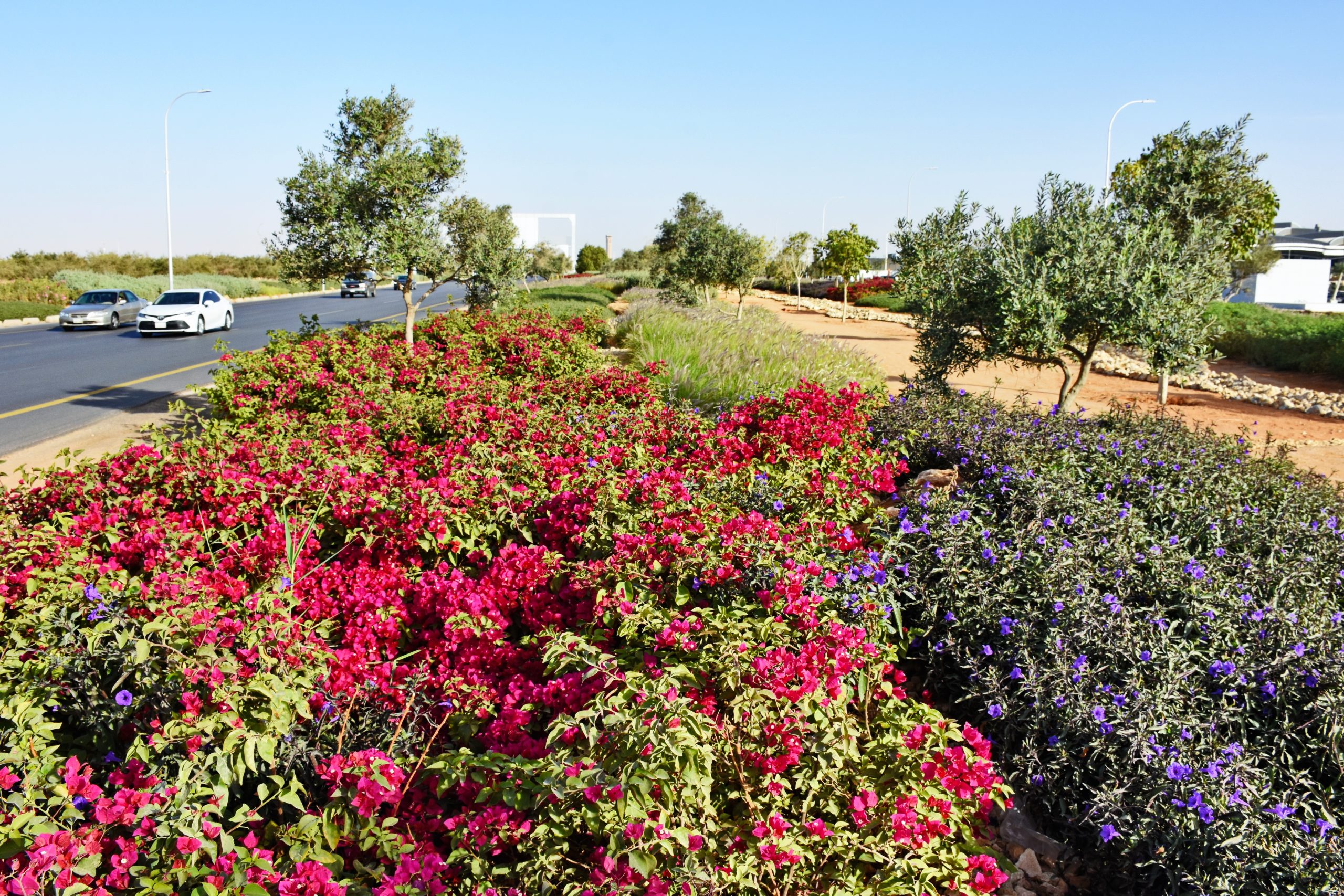
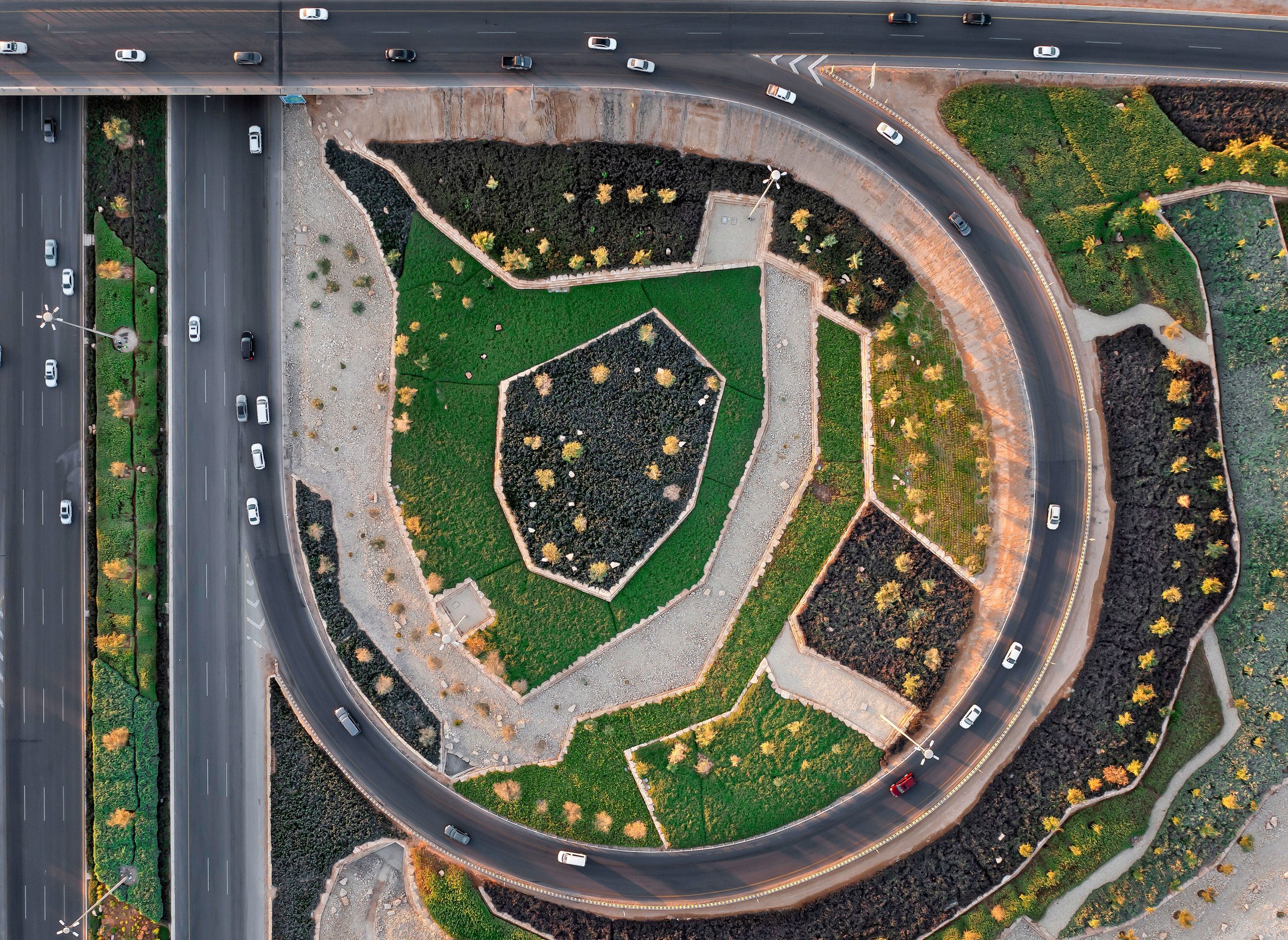
Sub-Projects within Green Riyadh Program
The Green Riyadh Program includes the development of several major parks across the capital, such as Al Urubah Park, Al Munsiyah Park, Al Qadisiyah Park, and Al Rimal Park, along with large-scale afforestation efforts targeting valleys and their tributaries. This include:
Three Major Parks
Green Riyadh Program carries out three major parks in the eastern districts of Riyadh – Al Munsiyah, Al Rimal, and Al Qadisiyah – covering a combined area of more than 550,000 square meters. These parks are uniquely designed to integrate the natural features of Wadi Al-Sulay, which runs through the eastern part of the city. They are also connected to the Sports Boulevard via shaded pedestrian pathways, enhancing accessibility and usability.
King Abdulaziz Park
The Program also includes the development of King Abdulaziz Park, covering 4.3 million square meters in northern Riyadh. Strategically located near King Khalid International Airport and Princess Nourah Bint Abdulrahman University, and directly linked to the metro network, the park is set to become one of the city’s largest and most accessible green destinations.
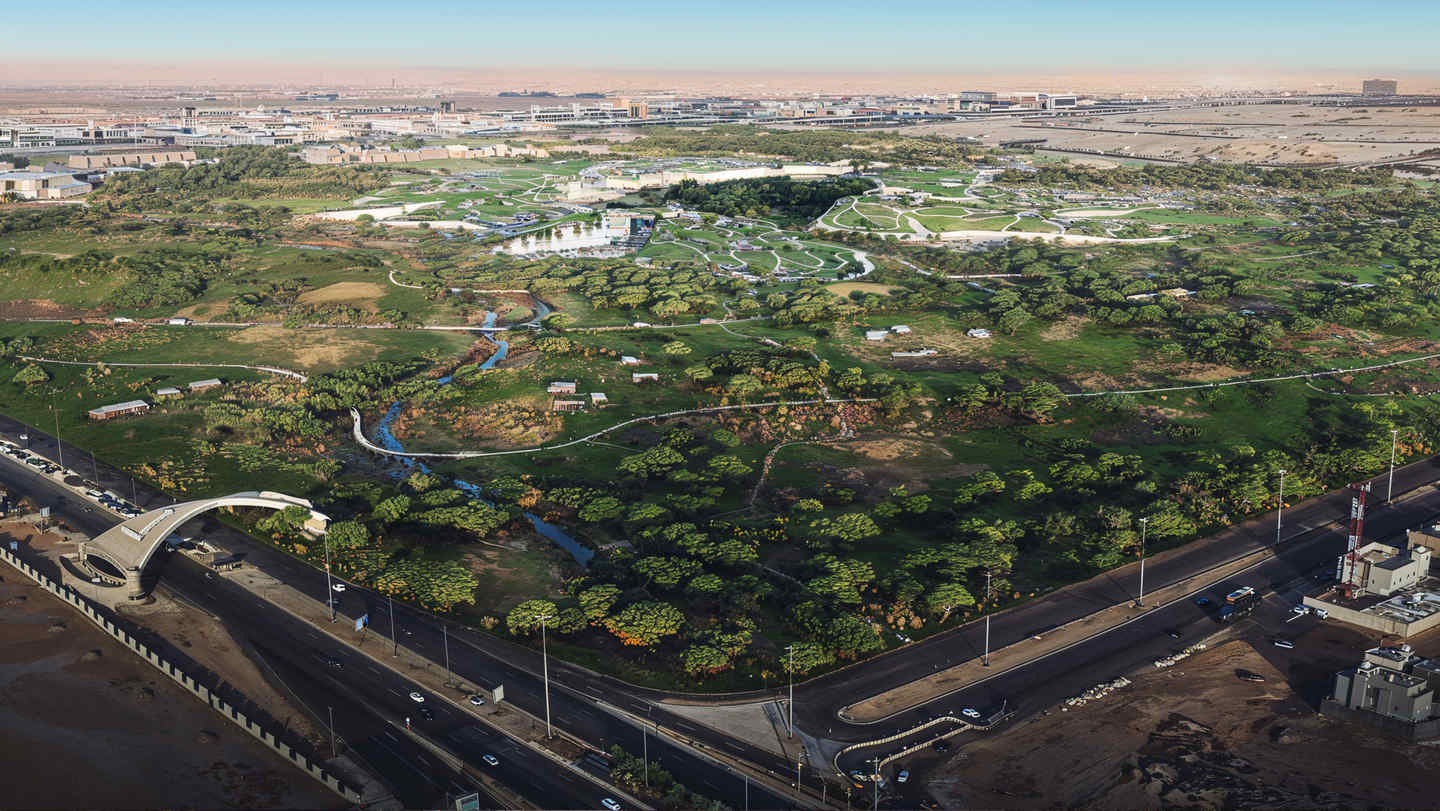
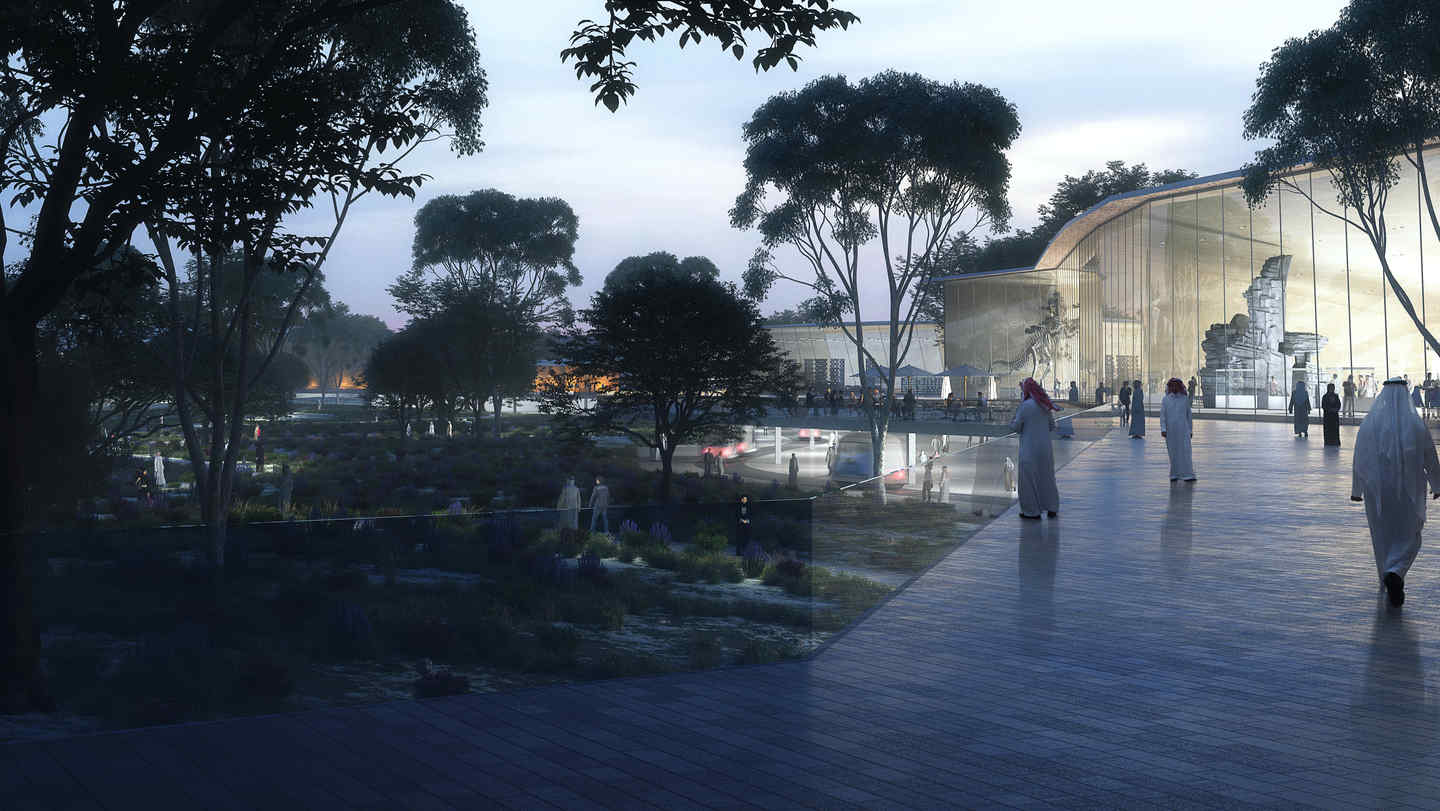
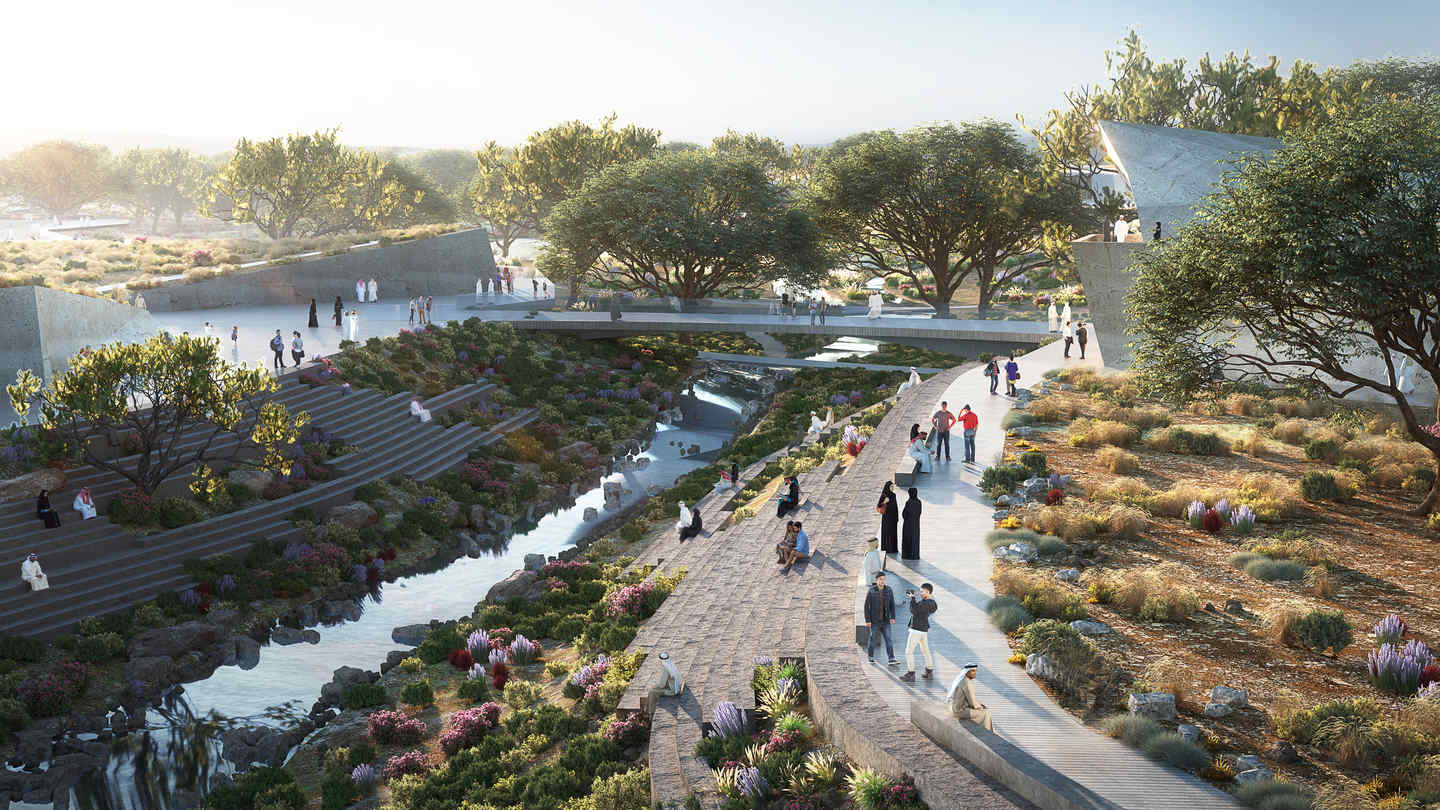
Dhahrat Namar Park
Work is also underway under the Program to develop Dhahrat Namar Park, a 35-kilometer corridor spanning 2.45 million square meters in southwest Riyadh and extending through six neighborhoods: Tuwaiq, Al-Awali, Shubra, Al-Suwaidi Al-Gharbi, Al-Hazm, and Namar.
Dhahrat Namar Park features more than 47,000 native, valley-adapted trees, providing shade across approximately 54% of the park’s area. The development will include tree-lined pedestrian promenades along the neighborhoods overlooking the valley, 52 kilometers of walking trails, and a 33-kilometer cycling track—designed to encourage residents to exceed an average of 6,000 steps per day.
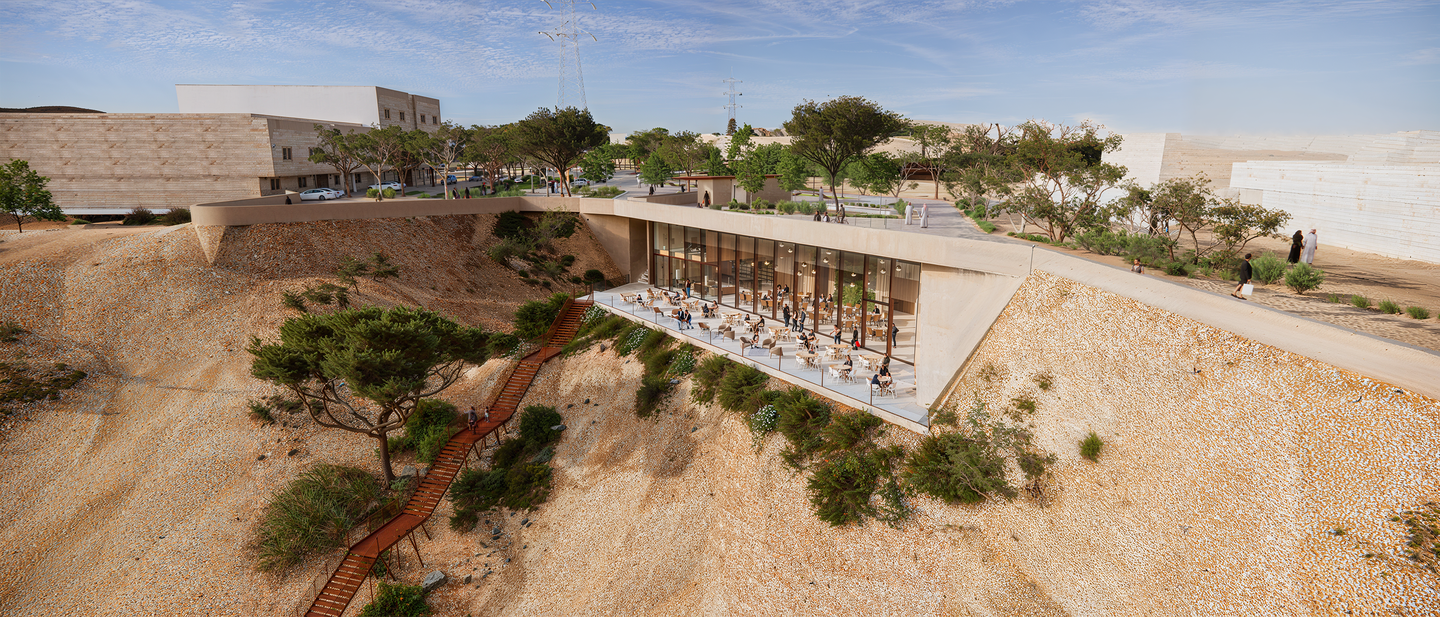
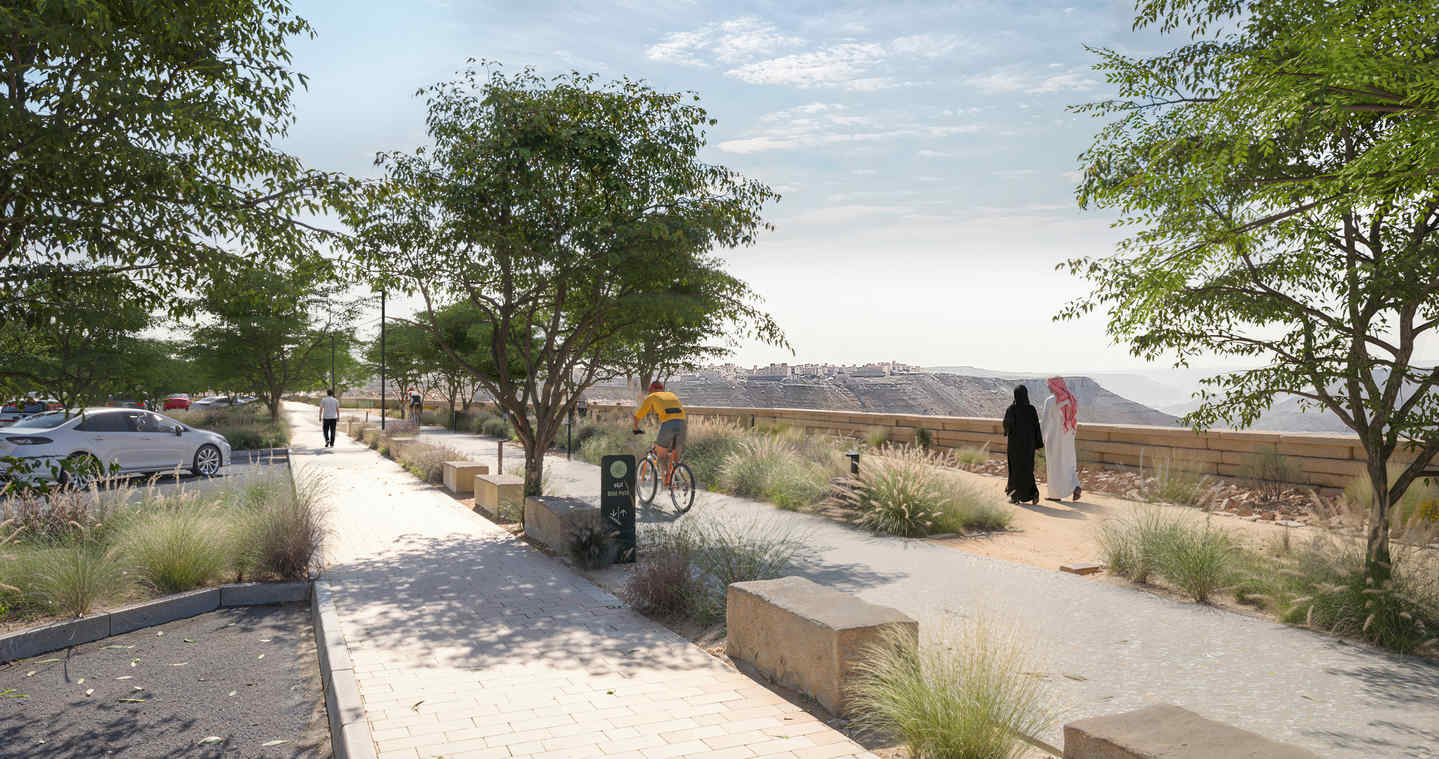
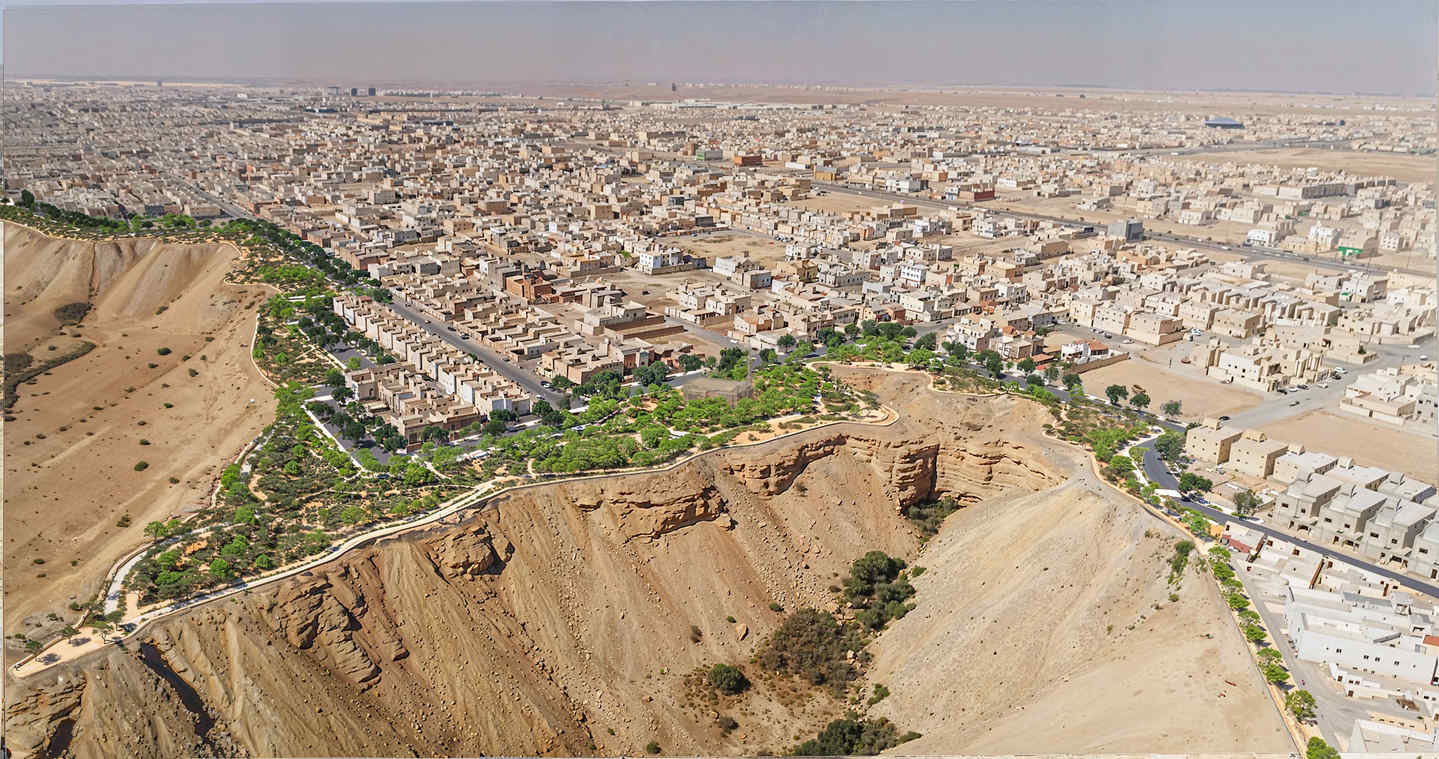
The park – with panoramic views overlooking Wadi Namar and the lake – helps expand the city’s green cover. It also improves access between the valley’s upper and lower levels through five distinct trails, creating a recreational setting with natural viewpoints and open spaces. The park’s design incorporates locally sourced materials that blend with the natural landscape of Wadi Hanifa.
It includes 42 observation decks overlooking Wadi Namar and the lake, as well as 46 seating and picnic areas that invite visitors to enjoy the surroundings. In addition, three suspension bridges connect the surrounding neighborhoods to the green spaces, improving access and encouraging walkability across the area.
Construction also include 29 sports courts built to modern specifications and safety standards, along with 17 children’s playgrounds designed with safety and comfort in mind. To support visitors, the park provides 3,800 parking spaces and 10 public restrooms, in addition to other services and amenities such as restaurants and retail outlets.
Shuaib Ghadhwana Environmental Rehabilitation
The program completed the environmental rehabilitation of Shuaib Ghadhwana, a tributary of Wadi Hanifah. Over 15,000 trees and shrubs have been planted along the 5.2-kilometer stretch, transforming the site into a natural public park that extends through the neighborhoods of Dhahrat Al Badi’ah, Al Suwaidi, and Al Zahra in the southwest of Riyadh.
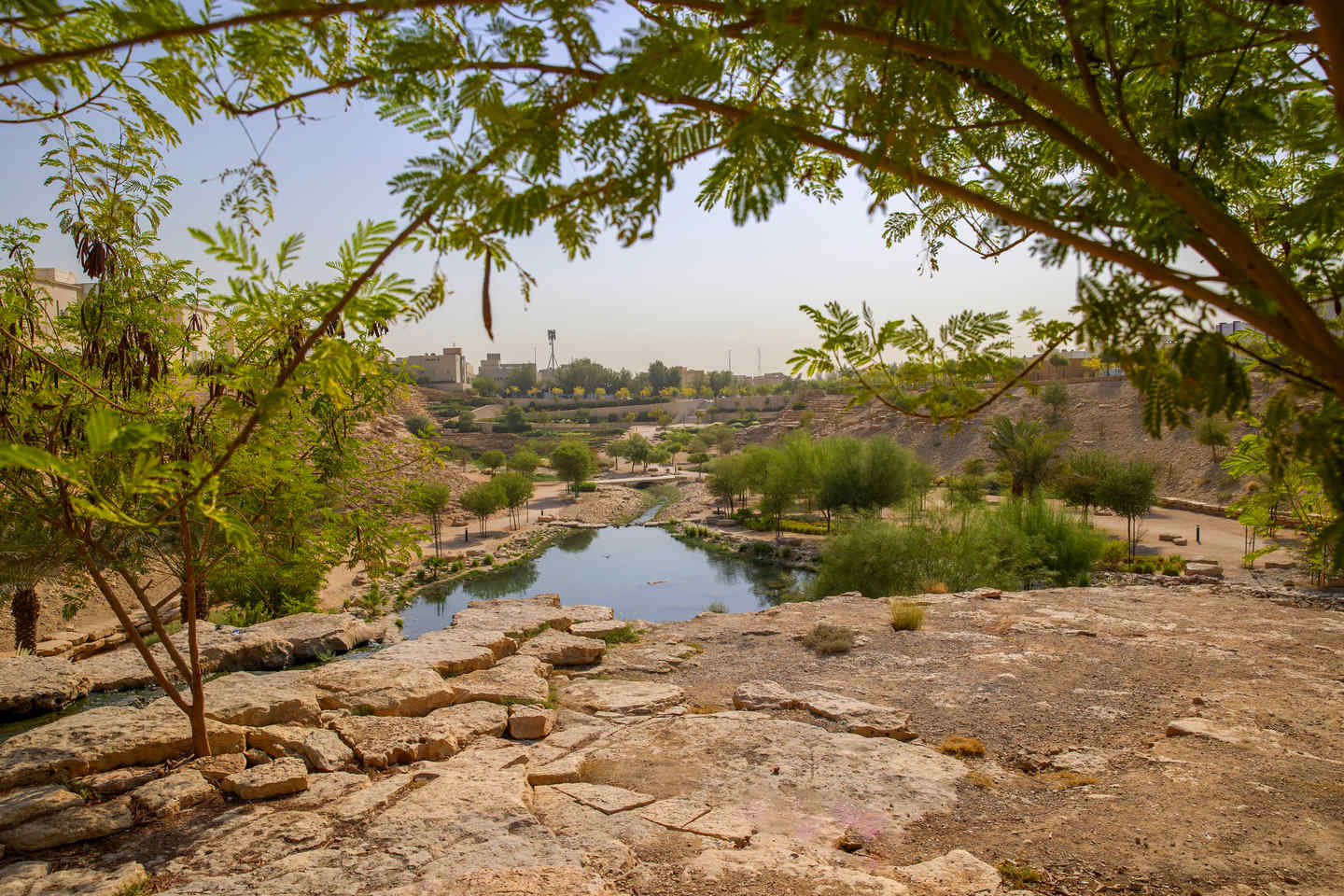
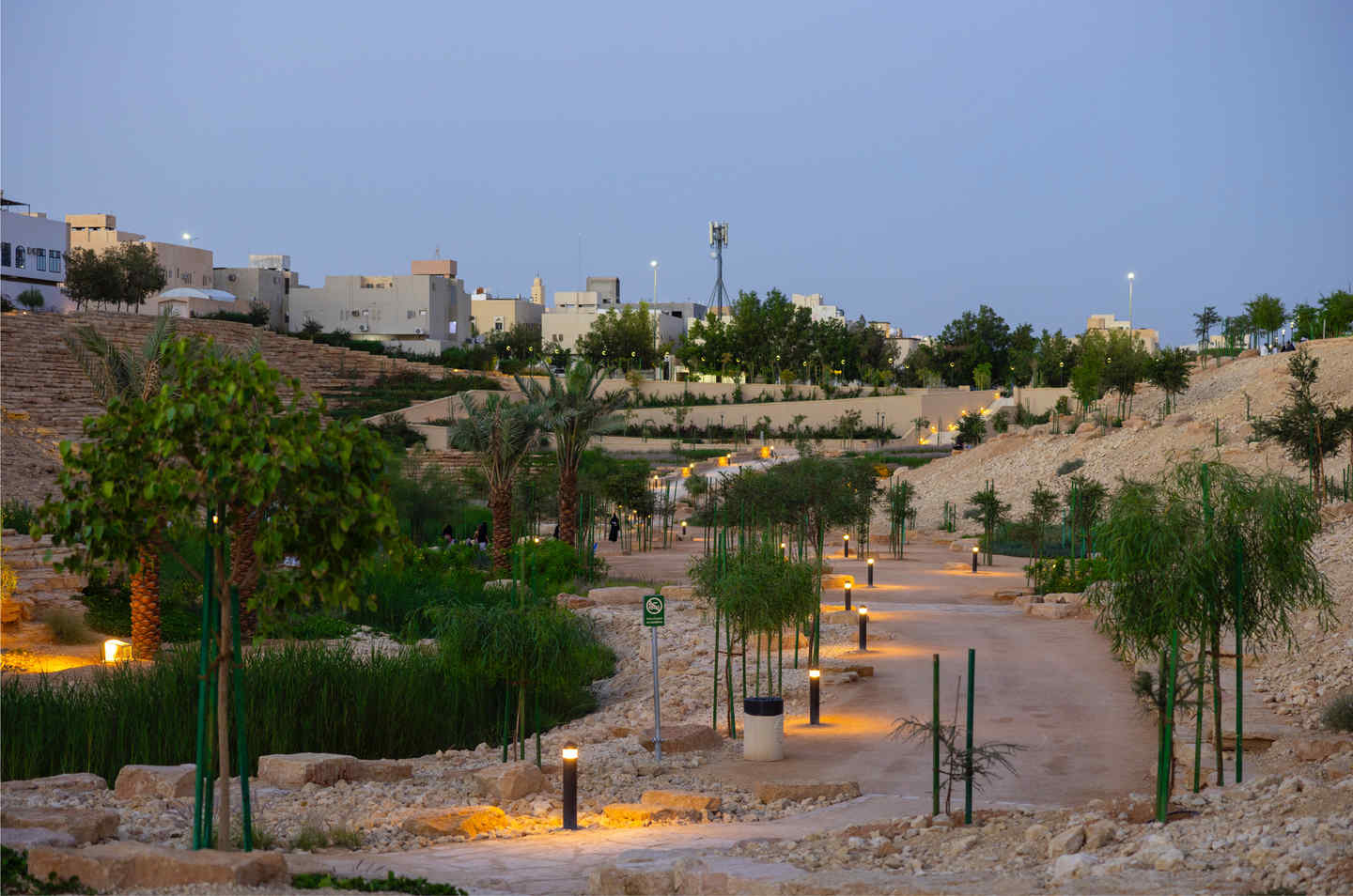
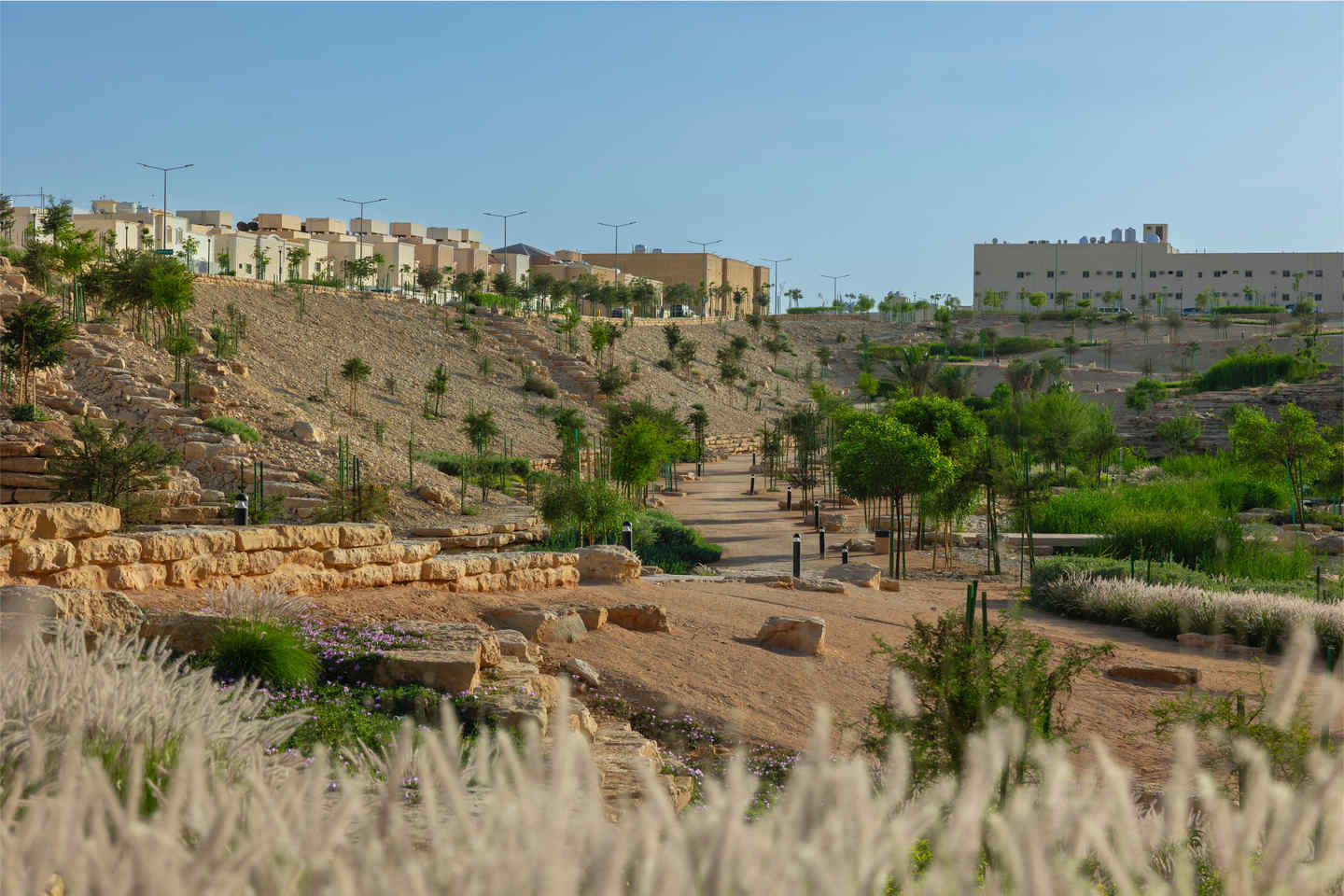
Program Returns
- Reducing the air temperature by 1.5 to 2 ° C at the city level.
- Reducing the temperature of glare reflected from the surface of the earth between 8 to 15 degrees in intensive afforestation areas.
- Reducing carbon dioxide by 3-6%, increasing the rate of oxygen, increasing the rate of air humidity, thus improving the air quality in the city.
- Reducing energy consumption by an average of 650 GWh during the year.
- Increasing the city’s capacity to absorb rainwater and reduce the effects of flooding in the city.
- Enhancing the aesthetic aspects of the city.
- Encouraging the population to practice healthy mobility patterns.
- Preserving natural areas and increasing biodiversity within and around the city.
- Improving the quality of life indicators in the city, thus raising its classification among its counterparts in the world.
- The program provides new investment opportunities for the private sector in plant nurseries, afforestation, garden design, landscaping and irrigation work.
- The program contributes to achieving a number of goals of Saudi Vision 2030 by achieving environmental sustainability in the city, building a vibrant community with a healthy lifestyle, and enhancing the economic efficiency of the city.
- The program contributes to achieving a number of objectives of the National Transformation Program, including increasing green space, reducing water waste, improving the efficiency of flood drainage, raising the percentage of treated water use, and increasing the per capita share of green spaces and national parks.
- The program contributes to achieving a number of goals of the “Quality of Life Program” by establishing open areas for social communication and practicing various sports and increasing individuals’ walking rates.

